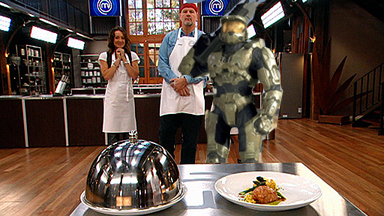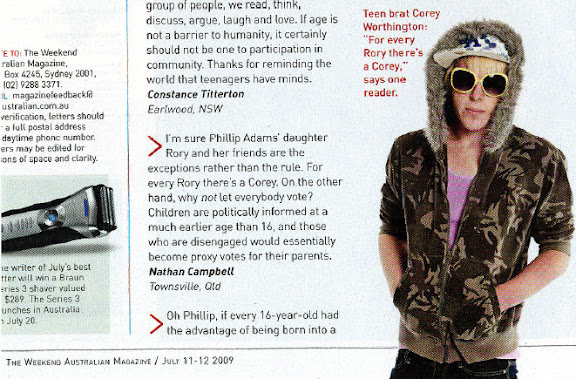This week is turning out to be very interesting.
First up, the Traveston Crossing Dam is no more. A rather belated move by Peter Garrett destroys his Labor counterparts plans. The Courier mail contains good coverage of the issue today, and highlights some very interesting points.
I don’t like Anna Bligh much. I didn’t like her much prior to her becoming Premier, but I decided to give her a chance and a clean slate. She has failed miserably in pretty much all respects.
However, she did have a tremendous task in front of her. She inherited a government that had spent up in the good times and left little for the bad, a SEQ grappling with water issues, a tarnished health sector, oncoming infrastructure problems (that many foresaw were approaching, but the past Labor government did little to avoid), and, it has to be said, a not overly sparkling bunch of MPs around her. So, it could be said, the previous Premier Peter Beattie bowed out just before his legacy took its crippling hold on the State.
It was nice though of Garrett to wait so long to enter the fold here. Good decisiveness by the Federal Government, who took the best part of two years to make a real stand against a project that has impacted so many people. Still, the move will probably win them further accolades as the saviours of the area. Maybe they were holding off so they didn’t impact Bligh’s chances, but then when they realised Bligh was too far gone, and there was no point trying to save a fellow party member if they are going to lose anyway, they may as well do something. It would be interesting to find out what happened behind the scenes there.
Still, Bligh has yet to display any real propensity for the job. She managed to introduce flouride, which was generally well received though controversial, and begin some water projects (all of which have so far had far more failings than successes). Many attacked her media profile, but I think this is a bit of a meh point. In today’s world of governance, public exposure is important. She used her leave for Master Chef, so while it was arguably a dumb move, it wasn’t exactly a decision deserving of major criticism.
Further into today’s Courier, the new Family (Surrogacy) Bill has gotten some coverage. Not content with the (very poorly written) article, I went and found the Bill. Indeed, section 9 (2) of the Bill provides eligible couples to only include married couples or mixed gender de factos. Springborg apparently has said the Bill is designed for hetrosexual couples only. So it might be a bit hopeful to suggest the language of the Bill almost sounds like it would be open in the future to providing surrogacy to all types of married couples (depending on who was defined as ‘married’). So, depending how you feel about surrogacy, this is at least a step forward. But, while making the step, there is also a bit of throwing the leg out and tripping some people over. It seems the LNP is adhering to its more conservative members on this one.
Which leads on to the next interesting happening. Senator Sarah Hanson-Young of the Greens has introduced a Bill to allow same-gender marriage. High fives all round Sarah Hanson-Young. So it seems there is one awesome Green. But then she goes on and says this:
“I’m calling for the prime minister to … grant his members a conscience vote so we can get a true reflection of how the Australian community is feeling.”
Pfft. A conscience vote has no chance of reflecting how the Australian community is feeling.






